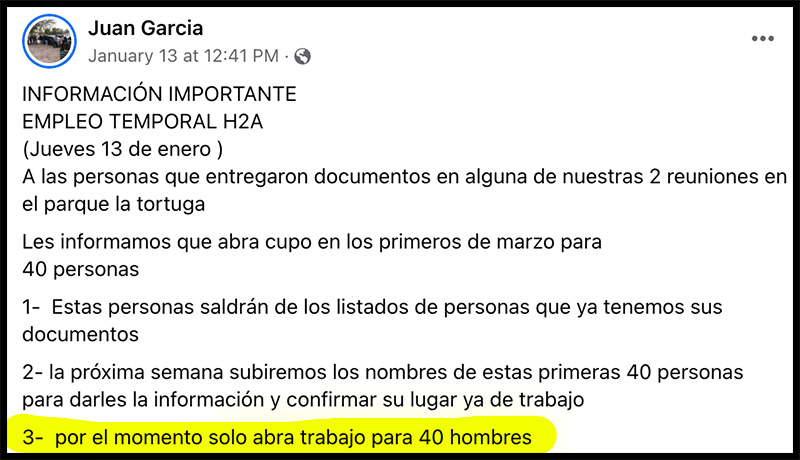It’s been over a year since we supported Maritza Perez Ovando and Adareli Ponce Hernandez in filing the first ever complaint against the U.S. government under the USMCA. Supported by more than 153 signatories — 125 organizations and 28 leading academics — the complaint argued that the US is allowing migrant women like Maritza and Adareli to face systemic sex-based discrimination under the labor migration programs.
When we filed the complaint, we welcomed promises from U.S. officials to resolve it by centering migrant women’s priorities and incorporating their recommendations. But after 373 days without any concrete policy changes, those promises to migrant women seem void. The government’s failure to act perpetuates violence for women across borders.
That’s why today, we filed additional evidence including worker testimonies and several examples of discriminatory job ads. This supplement highlights the abuse women have faced: sexual violence in their workplaces, constant denial of access to work opportunities in the US, and lower wages than their male counterparts. These women are courageously sharing their stories to demand tangible and immediate changes.


Discriminatory job postings found on Facebook and included in the complaint. Highlighted text reads: “in the harvest of carrots for men and packing for women” and “at the moment, there will only be work for 40 men.”
It’s not fair that only men get jobs. Many of us are single mothers; I have three children and I have to fight for them,” said Reyna Lopez, a farmworker in Mexico. When she arrived at the recruitment office to deliver her paperwork to apply for a job, she was told that the grower was only hiring men. “When we can’t access jobs, we’re being deprived of the opportunity to support our families. I hope that the United States government resolves this complaint so that next time I apply, the outcome of the recruitment process will be different for me and all the women who are being left behind. We want to have the opportunity to succeed.”
The U.S. government has a duty and responsibility to answer to the hundreds of thousands of women who face sex-based discrimination every day as a result of this flawed labor migration system.
The USMCA has stronger labor provisions than the preceding agreement, but whether there is the political will to use them in order to improve conditions for migrant workers is still in question. If serious about its commitment to uphold the rights of workers and women of color, the U.S. government will resolve our complaint in a comprehensive and inclusive way that effectively addresses systemic sex discrimination.
On Cesar Chavez Day and the last day of Women’s History Month, will you join migrant worker women by making a donation to support our efforts?

